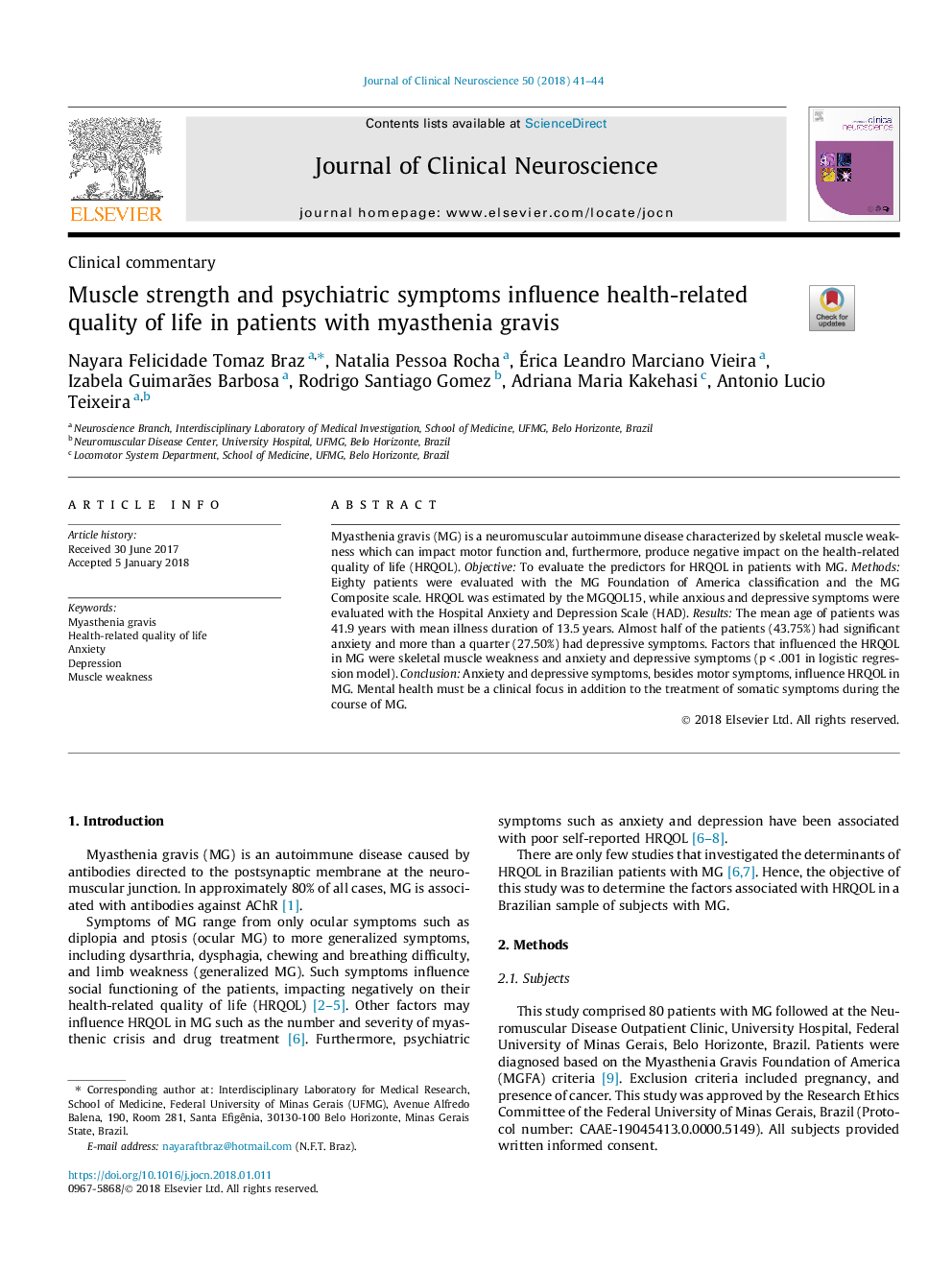| Article ID | Journal | Published Year | Pages | File Type |
|---|---|---|---|---|
| 8685145 | Journal of Clinical Neuroscience | 2018 | 4 Pages |
Abstract
Myasthenia gravis (MG) is a neuromuscular autoimmune disease characterized by skeletal muscle weakness which can impact motor function and, furthermore, produce negative impact on the health-related quality of life (HRQOL). Objective: To evaluate the predictors for HRQOL in patients with MG. Methods: Eighty patients were evaluated with the MG Foundation of America classification and the MG Composite scale. HRQOL was estimated by the MGQOL15, while anxious and depressive symptoms were evaluated with the Hospital Anxiety and Depression Scale (HAD). Results: The mean age of patients was 41.9â¯years with mean illness duration of 13.5â¯years. Almost half of the patients (43.75%) had significant anxiety and more than a quarter (27.50%) had depressive symptoms. Factors that influenced the HRQOL in MG were skeletal muscle weakness and anxiety and depressive symptoms (pâ¯<â¯.001 in logistic regression model). Conclusion: Anxiety and depressive symptoms, besides motor symptoms, influence HRQOL in MG. Mental health must be a clinical focus in addition to the treatment of somatic symptoms during the course of MG.
Related Topics
Life Sciences
Neuroscience
Neurology
Authors
Nayara Felicidade Tomaz Braz, Natalia Pessoa Rocha, Ãrica Leandro Marciano Vieira, Izabela Guimarães Barbosa, Rodrigo Santiago Gomez, Adriana Maria Kakehasi, Antonio Lucio Teixeira,
